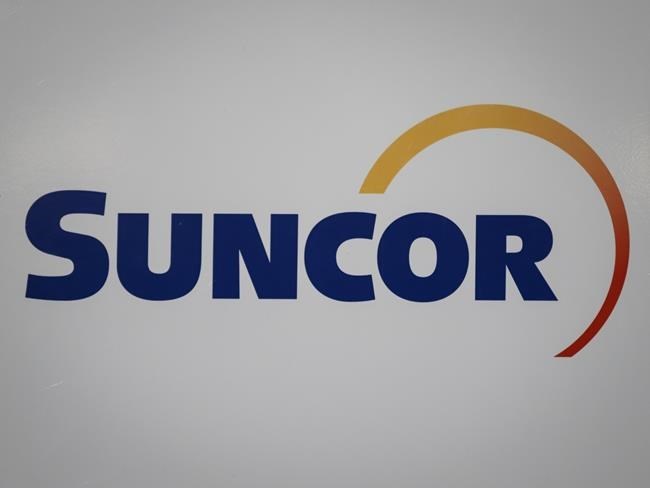CALGARY — Suncor Energy Inc. will adopt mining safety technology for the first time in the oilsands after a recent fatality that marked the company's fourth workplace death since late 2020.
The change is among a series of efforts to improve safety at its sites, Suncor chief executive Mark Little said Thursday during a conference call to discuss fourth quarter earnings.
“As CEO, the accountability for safety and operational excellence is with me, period," he told analysts. “I have a comprehensive plan endorsed by our board and we’re executing this plan to address these concerns.”
The company will implement collision avoidance and fatigue management technology across all of its mobile mine equipment within the next 18 to 24 months, Little said.
“This is a technology that is used globally in mining, but it is not used in oilsands. So we’ll be the first oilsands company to universally use this all across the mines," he said.
Last month, a truck crash at Suncor's Base Mine site near Fort McMurray, Alta. resulted in the death of a contractor.
The company has said one heavy haul truck rear-ended a second heavy haul truck while they were both driving up a mine haul ramp.
The two workers in the truck that was hit from behind sustained minor injuries while the driver of the other truck died. The deceased contract worker was employed by North American Construction Group.
The Calgary-based oil producer and refiner also reported last month two other operational incidents that occurred in December related to equipment failures and extreme cold weather at oilsands locations. The company said these incidents resulted in a production loss of about 195,000 barrels per day in the last half of December.
Little said on Thursday these incidents, along with the recent fatality, are "unacceptable." He said the company recently completed an independent review of safety at its oilsands mines, including a focus on the safety of contract workers.
“As part of that, we’ve spent quite a bit of time reducing the prescriptive procedures, which quite frankly we found out a lot of people are not using or following . . . there was a gap between the practice and the actual procedures," Little said, adding the Suncor management is now focused on engaging directly with front-line workers about safety.
Suncor Energy Inc. reported after markets closed Wednesday that it earned $1.53 billion in the fourth quarter of 2021.
The company said it earned $1.07 per common share for the period ended Dec. 31, compared with a net loss of $168 million or 11 cents per common share in the same period of 2020.
Revenues surged 68 per cent to $11.1 billion from $6.6 billion in the fourth quarter of 2020.
Analysts expected Suncor to earn $1.35 billion in the quarter, or 94 cents per common share on $10.8 billion of revenues, according to financial database company Refinitiv.
Suncor said the increases were primarily related to higher crude oil and refined product sales reflecting the improved business environment. The fourth quarter of 2020 had been negatively impacted by the significant decline in transportation fuel demand related to the COVID-19 pandemic.
Suncor says it generated a record $3.1 billion, or $2.17 per common share, in adjusted funds from operations during the fourth quarter.
Suncor's total upstream production was 743,300 barrels of oil equivalent per day (boe/d) in the fourth quarter, compared with 769,200 boe/d in the prior year quarter. It says the decrease was due to in part to the absence of production from the Golden Eagle Area development, which was sold in the fourth quarter of 2021.
Suncor's refinery utilization averaged 96 per cent and its crude throughput was 447,000 barrels per day, compared to 95 per cent and 438,000 barrels per day in the prior year quarter.
In the fourth quarter, Suncor was able to ramp up its second production train at Fort Hills, the company's newest oilsands mine. The mine started production in 2018, but operations were hampered by the Alberta government's curtailment program. The second production train was shut down in 2020 due to low oil prices.
"Fort Hills has never really had a chance to hit its full stride," said Desjardins analyst Justin Bouchard in a note, adding the project is now on track to average 90 per cent utilization in 2022.
"A full year of normalized operations should provide a healthy boost to volumes."
Little also said on the call that the company has begun marketing its oil and gas assets in Norway to potential buyers, and also intends to assess market interest for part of Suncor's 40 per cent stake in the Rosebank oilfield in the North Sea, off the coast of the U.K.
This report by The Canadian Press was first published Feb. 3, 2022.
Companies in this story: (TSX:SU)
Amanda Stephenson, The Canadian Press



